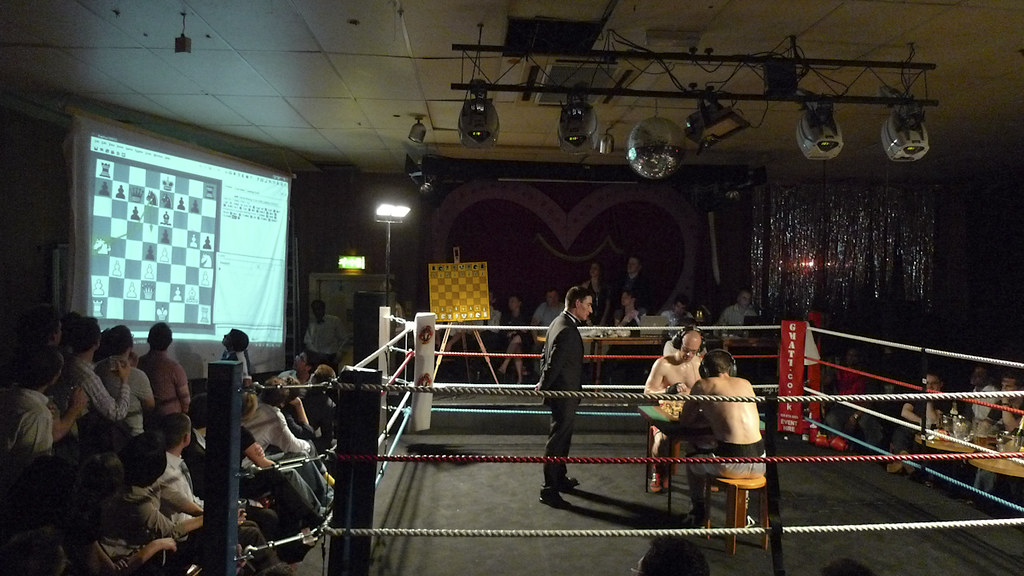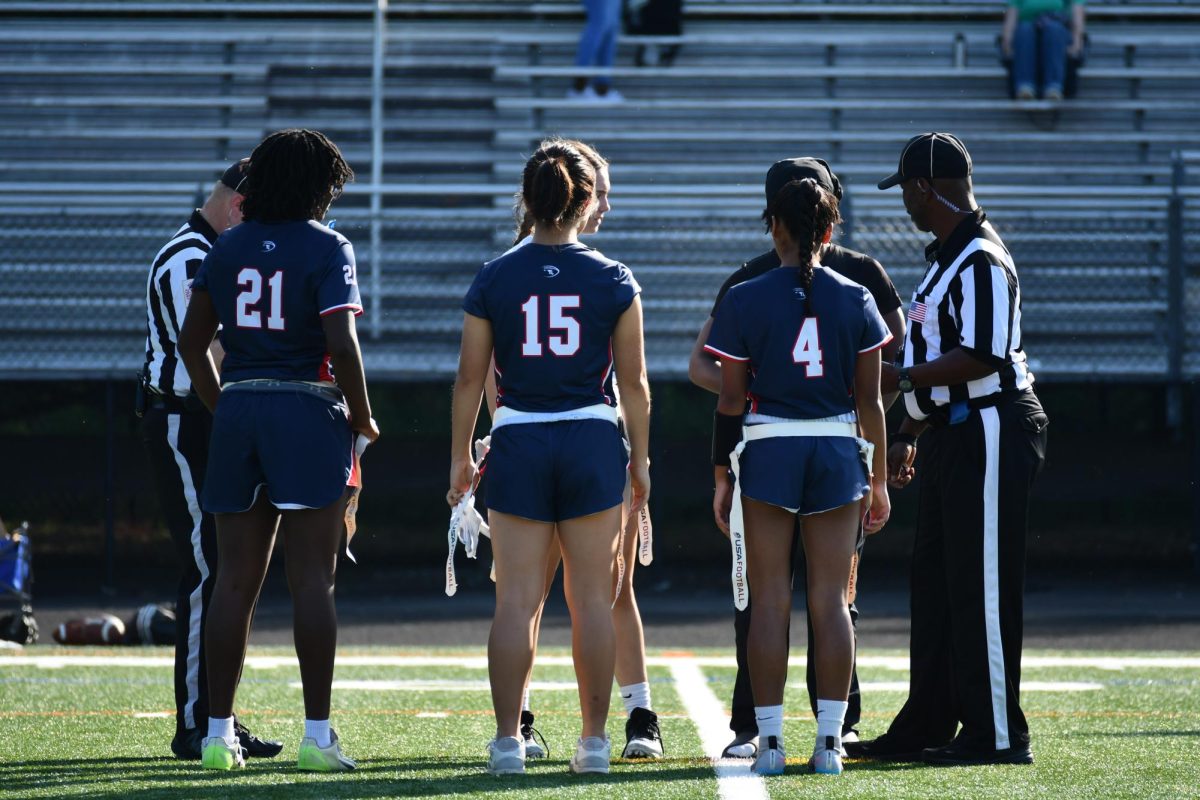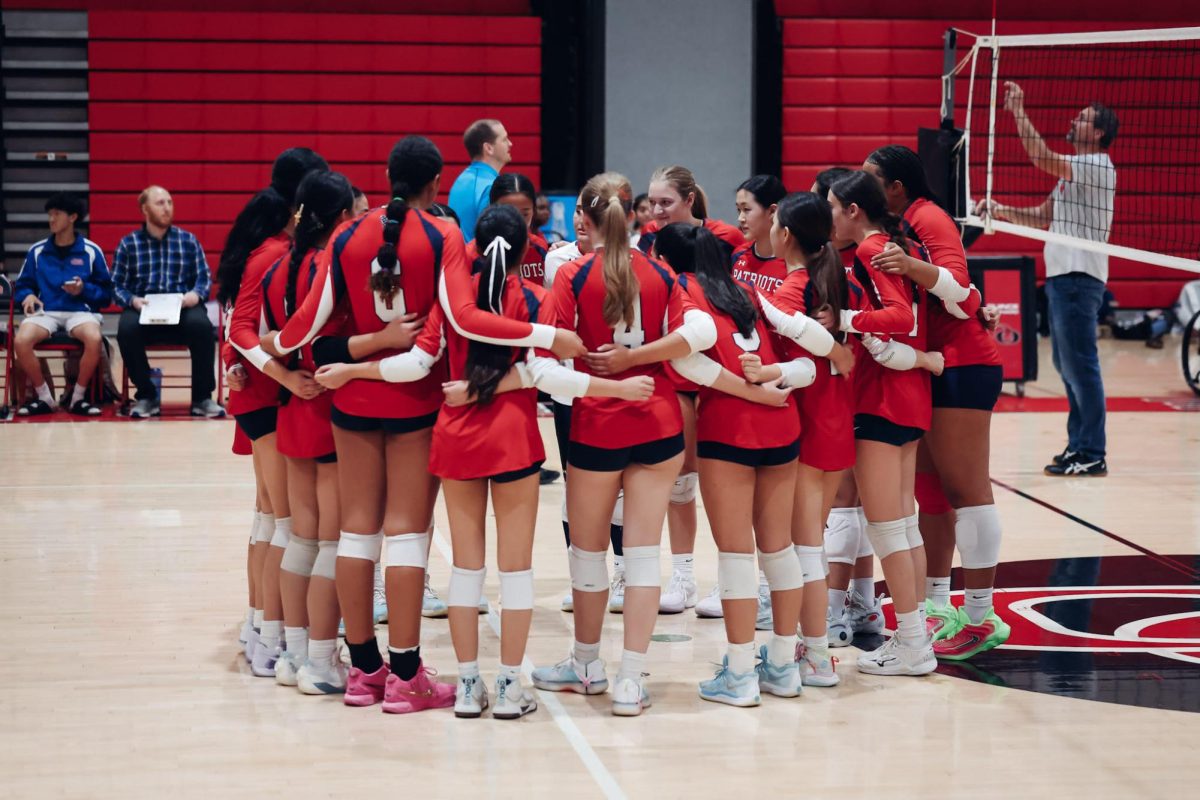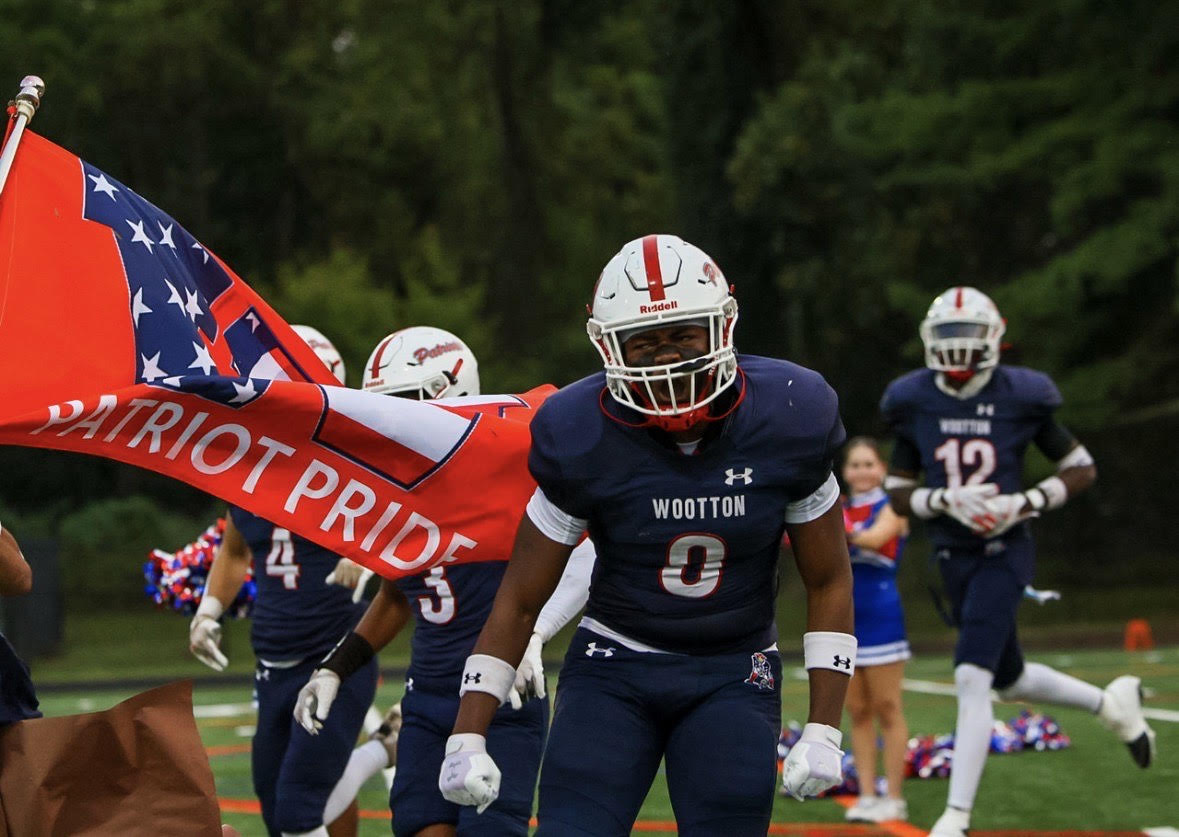I have never really cared about sports. This may be sacrilege coming from someone born on Long Island, but it’s true. I’ve been to a few baseball games, and I’ve idly observed soccer on the TV, but if I had to choose between tuning in for the NFL and playing Sudoku, I’d choose Sudoku any day. For a sport to interest me, it has to shake things up. It has to get me invested in the players mentally, show me more than just their athleticism. It has to be funny. And that is where the sport of chessboxing shines.
I find that the enjoyment that most people get from watching sports isn’t actually gotten from the sport itself. The enjoyment comes from a sense of camaraderie, friends sharing in the joy of their team’s victory and leaning on each other’s shoulders at their loss. I mean no insult to this communal spectator culture – it brings joy to people, and unless you’re in a British pub, is entirely harmless. However, I believe that a spectator sport, ideally, should be so enjoyable to watch because of its own merits, rather than because of the culture formed around it. Chessboxing, unlike many other sports, accomplishes this for me.
For some explanation, chessboxing is pretty much exactly what it sounds like – a combination of chess and boxing. A match of chessboxing is split into 11 rounds: six chess, five boxing. The chess game is played using “time control,” meaning that a player can only spend a limited total amount of time making their moves across the chess rounds – rounds which themselves are on a timer. This prevents players from stalling out the chess games and making the match boring, which is a concern that some might have when hearing “competitive chess.” After the timer for a chess round has run down, the competitors get a one minute break before entering a three-minute round of boxing. This cycle repeats until either a checkmate in the chess game or a knockout in boxing occurs – a funny premise, yet one that seems unfit for proper competition.
But chessboxing is more than a silly joke – it is a uniquely challenging activity, requiring not only skill in both of its aspects, but a great amount of mental fortitude. The chess rounds, though played under a time crunch, still require both players to carefully consider their moves lest they lose the game. It’s not difficult to see why this becomes far more difficult after getting your ribs turned into a punching bag – not only are you dealing with an increasing number of physical injuries as the match progresses, but you have to quickly adjust your mindset from “beat this guy into a pulp” to “how do I stop that guy’s queen from putting me in checkmate,” before going right back into putting on the gloves. It’s an immensely disorienting ordeal, and the beginning of each round leaves both fighters incredibly vulnerable. This constantly shifting mindset contributes to one of my favorite parts of chessboxing; Observing the players.
It’s difficult to appreciate many of the players in a team sport – there’s simply too many people to keep track of, and so most fans will focus on a few particularly skilled players, leaving the efforts of the rest of the team unnoticed. Chessboxing, by virtue of combining two one-on-one games (if you can really call boxing a game), avoids this issue, allowing spectators to see the full impact the players have on each other. In chessboxing, I can see the full effect that both rounds have on the players – how an unfavorable chess round leads one player to take more risks in the following boxing round, how a player that started off strong in chess becomes sloppier as they get pummeled in the boxing rounds. I find these effects, these changes in behavior, fascinating, and chessboxing accentuates them in a way that so many other sports simply can’t.
I don’t care about sports. I never have, and I likely never will. But chessboxing is the exception: It is a deeply interesting game of strategy, might, and mental resilience, one which makes the part of my brain that loves to psychoanalyze others light up, and above all else – above all the intrigue and punches – it is funny. That is why I love chessboxing.








